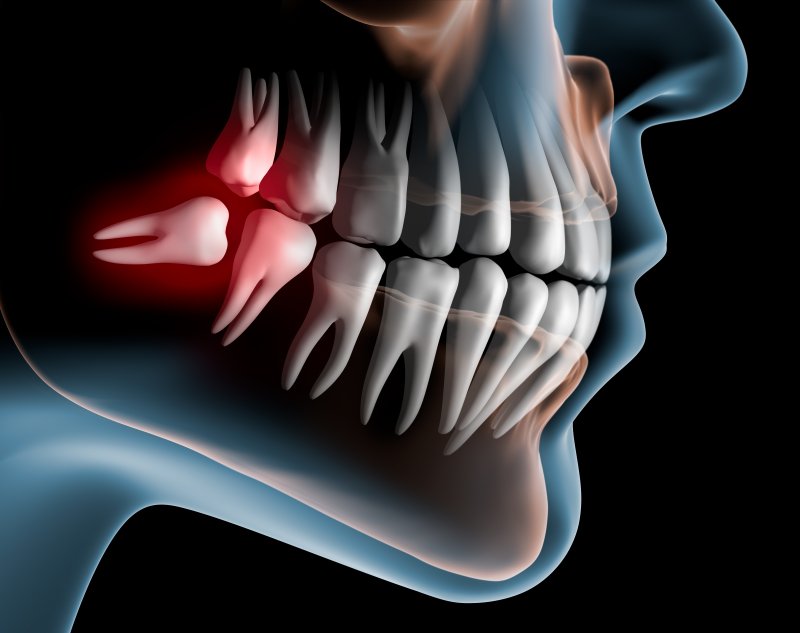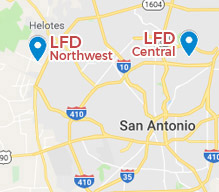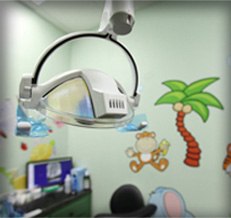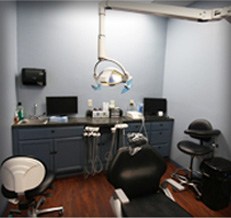
It’s time to visit your dentist for a regular checkup and cleaning. You express some concern about minor pain toward the back of your mouth and after a thorough review of your X-rays, you learn that certain teeth, your third molars, are impacted and causing discomfort. Shocked by the news, you learn you’ll need to undergo oral surgery to have them extracted. If you are wondering why wisdom teeth need to be removed, you’re not alone. Many patients ask the same question, but a dentist is here to share three of the most common reasons so that your oral health does not remain at risk.
Impaction: Why Do Wisdom Teeth Never Erupt?
Early civilizations used these teeth to eat. Because wisdom teeth are positioned at the back of the mouth, they made it easy to chew and gnaw through dense foods like game. However, as time passed, jawbones began to shrink, and people began to eat other forms of nutrient-rich food. As a result, these teeth were no longer necessary.
Unfortunately, just because they were no longer used doesn’t mean they didn’t exist. When a lack of space keeps these teeth from erupting, they can remain beneath the gumline, often developing at an awkward angle. This causes them to push against healthy teeth, resulting in damage and discomfort.
Infection: Can My Gums Be Affected Because of Wisdom Teeth?
Unfortunately, there is the potential for poor gum health when faced with the partial eruption of your wisdom teeth. Because of the minimal space available inside your mouth, they may be able to emerge just enough but not fully.
Not only does this make it difficult to thoroughly clean these teeth to reduce your chances of tooth decay and cavities, but it also poses a threat to your gum health. If bacteria and plaque begin to irritate the soft tissues, they can become infected. You may experience everything from swelling and discomfort to difficulty eating and chewing certain foods.
Cysts: Can My Jawbone Suffer Because of My Wisdom Teeth?
Although more unlikely than infection or impaction, the formation of a cyst is possible if your wisdom teeth are still in place. Over time, if the tooth is beneath the gumline, a small pocket of fluid can form in your jawbone. Without timely treatment (as a teenager), it can grow and expand. This continuous development can eventually result in damage to your nearby healthy teeth as well as your bone.
Wisdom tooth removal is often viewed as a rite of passage for many teenagers and young adults. By allowing your dentist to remove these teeth, you will avoid more serious problems in the future while also enjoying a pain-free smile.
About the Author
Dr. Racha W. Kadamani is a trusted dentist in San Antonio with years of experience. Skilled in treating patients who are experiencing wisdom tooth pain, our team can deliver safe and comfortable techniques to eliminate the discomfort and remove the affected teeth. If you or your teenager need help to remove your impacted or infected wisdom teeth, or a cyst has formed that is causing problems for your jawbone, contact us at (210) 782-0008 to let us help you!







